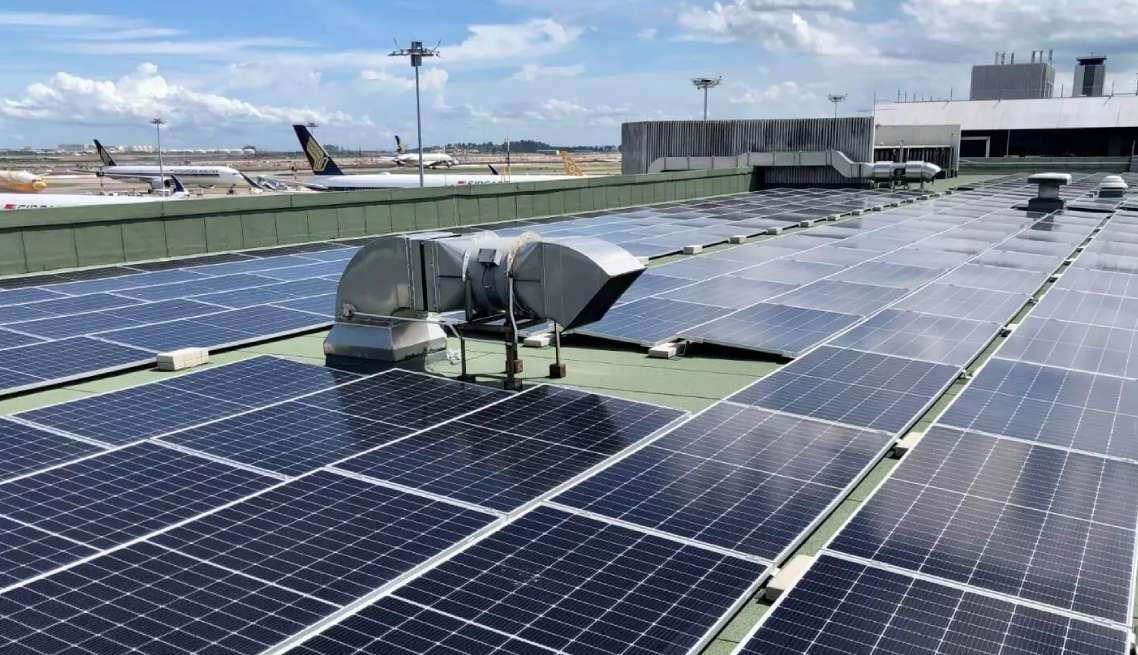
ENERGY ENGINEERING
Energy engineering plays a crucial role in Singapore’s transformation into a sustainable and energy-efficient economy. Situated as a global hub for innovation and trade, Singapore has adopted energy engineering solutions to address growing energy demands, environmental concerns, and the global push toward renewable energy sources. The field encompasses power generation, distribution, energy efficiency, renewable energy systems, and cutting-edge research into future technologies.
This detailed exploration highlights the significance, developments, challenges, and opportunities within the energy engineering sector in Singapore, showcasing how the nation is navigating the complexities of modern energy needs.
Importance of Energy Engineering in Singapore
Energy engineering is pivotal for Singapore’s economic development, sustainability goals, and energy security. With limited natural resources, the nation relies on innovative technologies, efficient systems, and forward-looking policies to meet its energy needs.
- Supporting Economic Growth
Singapore’s energy engineering sector underpins industries such as manufacturing, logistics, and digital technology, ensuring reliable and efficient energy delivery. - Driving Sustainability
As part of its Green Plan 2030, Singapore aims to achieve net-zero emissions by 2050. Energy engineering innovations in renewables, energy efficiency, and smart grids are critical to achieving this goal. - Enhancing Energy Security
Singapore’s strategic location and reliance on imported energy make it imperative to invest in advanced technologies for energy storage, diversification, and resilience. - Global Leadership
Singapore is a leader in energy innovation, attracting multinational corporations and startups focused on renewable energy, carbon management, and sustainable technologies.
Key Sectors in Singapore’s Energy Engineering Landscape
Singapore’s energy engineering sector spans several key areas that contribute to its energy ecosystem:
1. Power Generation
Singapore’s power generation mix is dominated by natural gas, which accounts for over 95% of electricity production. Energy engineering advances in combined-cycle gas turbines (CCGT) enhance efficiency and reduce emissions.
- Innovations in Gas Turbines: Companies such as Siemens and General Electric collaborate with local power producers to deploy highly efficient turbines.
- Shift to Cleaner Fuels: Ongoing research explores hydrogen and ammonia as alternative fuels for power generation.
2. Renewable Energy
Renewable energy is a growing focus, with solar power leading the charge due to Singapore’s geographical constraints.
- Solar Power: Singapore has installed over 500 MWp of solar capacity, with ambitious plans to reach 2 GWp by 2030. Companies like Sunseap and SolarNova are spearheading large-scale solar projects, including floating solar farms.
- Emerging Technologies: Efforts in wind, tidal, and waste-to-energy systems are advancing, despite Singapore’s limited natural resources.
3. Energy Storage
Energy storage systems (ESS) are critical for balancing renewable energy generation and demand.
- Battery Technologies: Companies like Sembcorp and Tesla are deploying large-scale battery systems to stabilize grid operations.
- Research and Development: Local institutions like Nanyang Technological University (NTU) lead research into advanced battery chemistries and long-duration storage.
4. Smart Grids and Energy Efficiency
Smart grids integrate digital technologies with power distribution, enhancing reliability and efficiency.
- Grid Innovations: The Energy Market Authority (EMA) oversees initiatives to modernize Singapore’s grid, incorporating real-time monitoring and predictive analytics.
- Building Efficiency: Energy engineering solutions optimize energy use in commercial and residential buildings through smart meters and AI-based energy management systems.
5. Carbon Capture and Utilization
Carbon capture, utilization, and storage (CCUS) technologies are gaining traction as Singapore aims to reduce industrial emissions.
- Pilot Projects: Companies like ExxonMobil and Shell are investing in CCUS projects to capture emissions from industrial plants.
- Collaborations: Partnerships with institutions like A*STAR and the Carbon Trust accelerate innovation in carbon reduction technologies.
Prominent Companies and Institutions in Energy Engineering
Singapore hosts a range of global corporations, local enterprises, and research institutions that drive advancements in energy engineering:
- Sembcorp Industries
Sembcorp leads in renewable energy development, including solar and waste-to-energy projects. Its integrated energy solutions optimize resource efficiency. - Keppel Corporation
Keppel focuses on sustainable urban solutions, including energy-efficient infrastructure, district cooling systems, and renewable energy. - Siemens
A global leader in energy technologies, Siemens collaborates with Singapore’s power sector to deploy advanced turbines, smart grid solutions, and automation systems. - Shell Singapore
Shell integrates traditional energy production with sustainable technologies like biofuels, hydrogen, and CCUS. - Nanyang Technological University (NTU)
NTU’s Energy Research Institute (ERI@N) conducts cutting-edge research in renewable energy, energy storage, and smart grid technologies.
Challenges in Energy Engineering
While Singapore has made significant strides in energy engineering, it faces several challenges:
- Limited Land and Resources
Singapore’s small land area and lack of natural resources limit large-scale renewable energy projects like wind farms. - High Costs
Advanced technologies in renewable energy, CCUS, and smart grids often involve substantial upfront investments. - Energy Transition
Balancing the transition from fossil fuels to renewables while maintaining energy security and affordability is a complex task. - Skilled Workforce
As energy engineering evolves, there is a need for a workforce skilled in emerging technologies like AI, data analytics, and advanced materials.
Opportunities and Future Directions
Despite challenges, the future of energy engineering in Singapore is bright, with numerous opportunities on the horizon:
- Regional Collaboration
Singapore can strengthen energy interconnectivity in Southeast Asia through initiatives like the ASEAN Power Grid, enabling cross-border electricity trade. - Hydrogen Economy
Hydrogen is a promising clean energy source. Singapore is exploring its potential through partnerships with countries like Australia and Japan. - Floating Solar Farms
Expanding floating solar projects on reservoirs and coastal areas maximizes renewable energy generation. - Energy-as-a-Service (EaaS)
Innovative business models like EaaS provide customized energy solutions, combining renewables, storage, and efficiency technologies for businesses. - Decarbonizing Industry
Deploying CCUS and low-carbon fuels in industrial sectors helps Singapore meet its climate targets. - Smart City Integration
Singapore’s Smart Nation initiative aligns with energy engineering by integrating smart grids, IoT devices, and data analytics into urban energy systems.
Government Support and Policy Framework
The Singapore government plays a proactive role in advancing energy engineering through various initiatives:
- Green Plan 2030
This roadmap sets targets for sustainability, including increasing solar energy deployment, improving energy efficiency, and advancing green innovation. - Energy Market Authority (EMA)
EMA oversees Singapore’s energy policies, ensuring reliable supply, promoting competition, and encouraging innovation. - Research Grants
Agencies like A*STAR and the National Research Foundation provide funding for energy R&D projects. - Carbon Tax
Introduced in 2019, Singapore’s carbon tax incentivizes industries to adopt cleaner technologies and reduce emissions.
